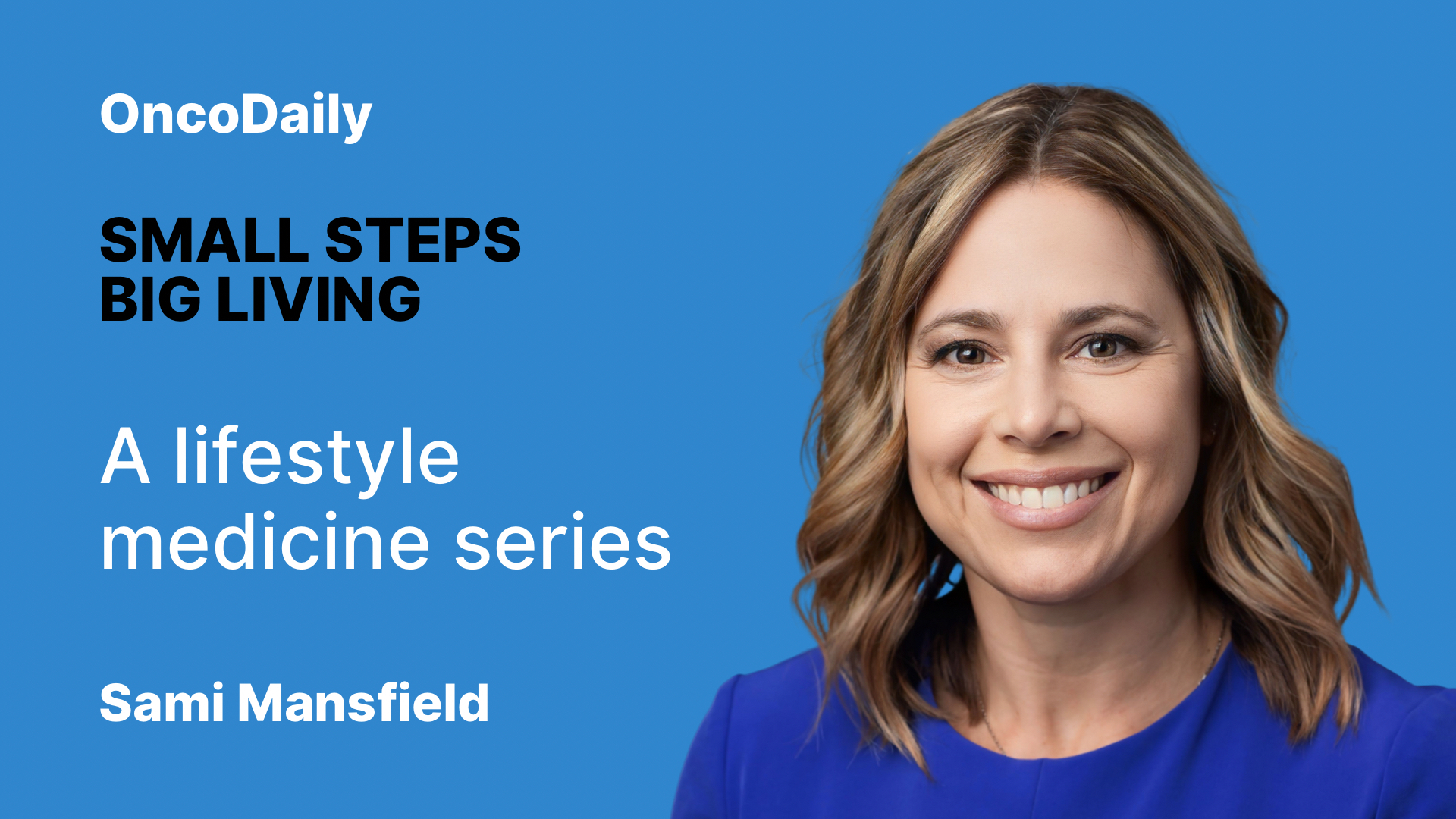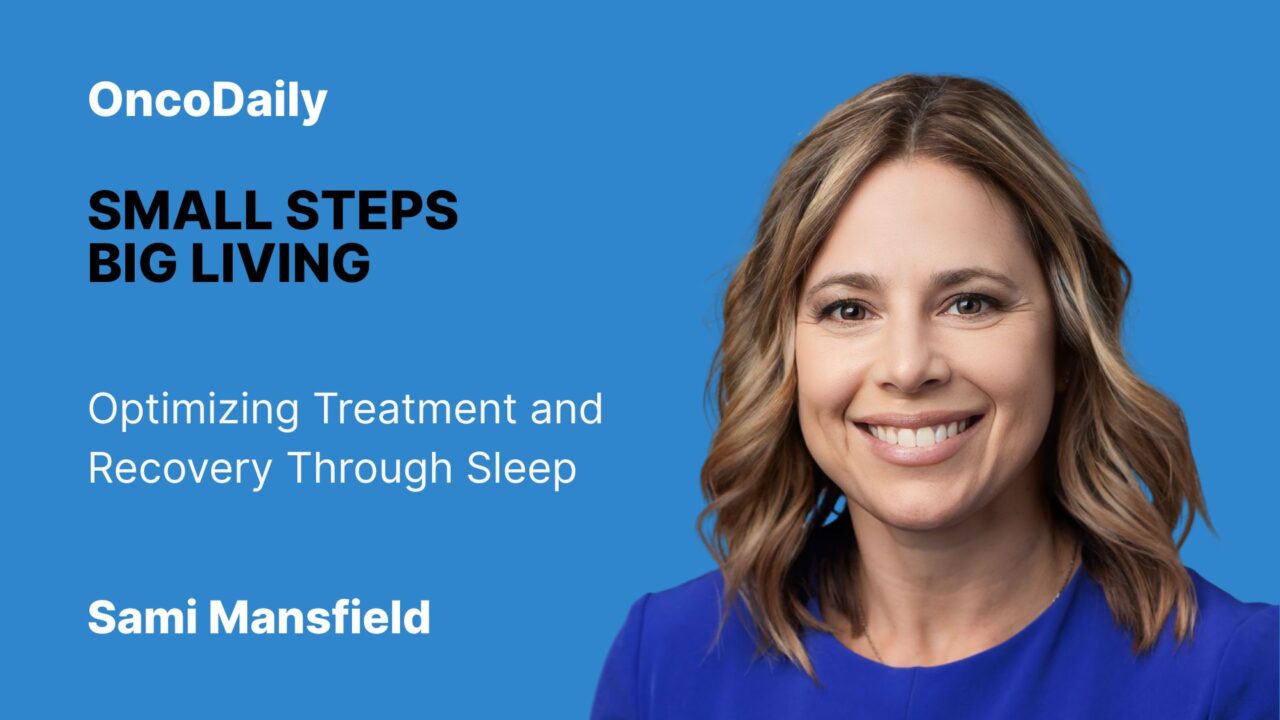In cancer care, conversations often center on what patients should do – move more, eat better, manage stress. Yet one of the most powerful tools for healing doesn’t happen in motion. It happens in rest.
Sleep is not passive. It is an active biological process of repair, regulation, and renewal — a time when the immune system recalibrates, damaged cells are replaced, and the brain clears waste through the glymphatic system. With an estimated 28–31 trillion cells in the human body and about 100 million new cells created each day, sleep is the body’s nightly maintenance plan — keeping every system working as it should (Sender, 2021).
For those living with and beyond cancer, restorative sleep can be the difference between simply getting through the day and rebuilding toward long-term health and treatment success.
How Significant Is Fatigue?
Sleep disruption is one of the most common side effects of cancer and its treatment, affecting roughly 60% of patients overall and up to 70% of those with advanced disease (Jakobsen, 2022). Even years after treatment, nearly 40% continue to experience poor sleep quality (Strollo, 2022).
The reasons are complex:
- Biologic shifts — inflammation, endocrine disruption, and altered cortisol rhythms
- Treatment effects — chemotherapy, radiation, and hormonal therapies that disrupt circadian timing
- Psychological stressors — anxiety, fear of recurrence, or practical concerns such as finances
- Lifestyle disruption — fatigue leading to inactivity, irregular meals, or reduced social engagement
- It’s a feedback loop: disrupted sleep heightens inflammation and fatigue, while stress and treatment side effects further fragment rest.
The Science of Repair
Sleep is not downtime – it’s active therapy. During the night, the body performs repair work that no medication or supplement can replicate.
Researchers have shown that sleep disruption and cancer biology share many of the same pathways—inflammation, immune suppression, and metabolic stress. When sleep is impaired, levels of inflammatory cytokines such as IL-6, IL-1β, and TNF-α rise, while protective immune cells including natural killer and T-cells decline (Berisha, 2022). Over time, this imbalance can influence how well the body responds to treatment and recovers from it.
Irregular sleep also disrupts metabolism and hormone regulation—two key drivers of fatigue and weight change during and after treatment. Short or fragmented sleep increases cortisol and insulin resistance, promoting abdominal fat storage and complicating glucose control, especially for those experiencing menopause or andropause (Figorilli, 2023). When we restore sleep, we help restore metabolic balance.
Sleep also strengthens the brain–body connection that governs resilience. The brain’s glymphatic system—its natural cleaning mechanism—becomes most active during deep sleep, clearing cellular waste and toxic proteins (Nedergaard, 2020). For individuals navigating cancer-related fatigue or “chemobrain,” this nightly cleansing is essential for clarity, focus, and recovery.
True restoration doesn’t come from a capsule—it comes from consistency.
When sleep becomes a struggle, the first instinct—for both patients and clinicians—is often to reach for a quick fix. Melatonin, herbal remedies, or sleep medications may help short term, but they rarely address the real problem: disrupted rhythms and inconsistent habits.
Reframing sleep as a behavioral practice helps patients build confidence and control. When we teach people how to support their circadian rhythm through small, sustainable actions, we create long-term results that no supplement can match.
Quality Sleep Starts in the Morning
One of the most overlooked truths about sleep is this: it doesn’t begin at night—it begins the moment you wake up.
The body’s 24-hour circadian rhythm relies on consistent cues—light, movement, and meals—that tell every cell what time it is. When those cues are disrupted, so is sleep. Restoring them is simple and profoundly effective.
How to Start the Day
- Get light. Within 15 minutes of waking, seek natural sunlight. If that’s not possible, turn on bright indoor lights to signal “daytime” to your brain.
- Hydrate. We lose about a liter of water overnight through respiration. Rehydrate before caffeine (then caffeinate, if desired).
- Move. Just one minute of movement—stretching, marching in place, or countertop pushups—activates circulation and energy.
- Mindset. Start your day intentionally. A simple statement like “It’s going to be a good day” sets the tone.
- Notice. No part of this list includes checking your phone or scrolling newsfeeds. How you start your morning matters.
Create an Evening “Wind-Down” Routine
- Keep it consistent. Go to bed and wake within an hour of the same time daily—even on weekends.
- Close the kitchen. Finish eating about three hours before bed to allow digestion to slow.
- Protect the last hour. Reduce bright light and screen time. Choose relaxing activities—shows, reading, or quiet conversation—that soothe, not stimulate.
- Clear your mind. Write down next-day tasks if your brain tends to race. End with gratitude—one positive reflection to anchor calm before sleep.
These simple, behavior-based strategies restore the body’s rhythm and support better rest—no prescription required.
Connecting the Pillars
In lifestyle medicine, no pillar stands alone. Sleep is the foundation that makes the others more effective.
When we improve sleep, we amplify the benefits of movement, nutrition, and stress management. For those impacted by cancer, better sleep doesn’t just mean feeling rested—it means healing more efficiently, tolerating treatment more effectively, and improving long-term quality of life.
Sleep is not a luxury in cancer care—it’s medicine.
References
- Sender, R., & Milo, R. (2021). The distribution of cellular turnover in the human body. Nature medicine, 27(1), 45–48.
- Jakobsen G, Gjeilo KH, Hjermstad MJ, Klepstad P. An Update on Prevalence, Assessment, and Risk Factors for Sleep Disturbances in Patients with Advanced Cancer-Implications for Health Care Providers and Clinical Research. Cancers (Basel). 2022;14(16):3933. Published 2022 Aug 15.
- Strollo SE, Fallon EA, Gapstur SM, Smith TG. Cancer-related problems, sleep quality, and sleep disturbance among long-term cancer survivors at 9-years post diagnosis. Sleep Med. 2020;65:177-185.
- Berisha A, Shutkind K, Borniger JC. Sleep Disruption and Cancer: Chicken or the Egg?. Front Neurosci. 2022;16:856235. Published 2022 May 19.
- Figorilli M, Velluzzi F, Redolfi S. Obesity and sleep disorders: A bidirectional relationship. Nutr Metab Cardiovasc Dis. 2025;35(6):104014.
- Nedergaard M, Goldman SA. Glymphatic failure as a final common pathway to dementia. Science. 2020;370(6512):50-56.
You Can Also Read:
More Than a Feeling: How Stress Shapes Cancer and Healing – Sami Mansfield
Small Steps, Big Living – A Lifestyle Medicine Approach to Cancer Survivorship: Sami Mansfield
Small Steps, Big Living: Why Movement is Medicine – Sami Mansfield
Small Steps, Big Living: Why What You Don’t Do Matters – Sami Mansfield



